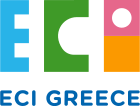


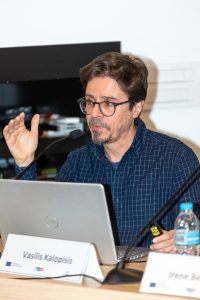


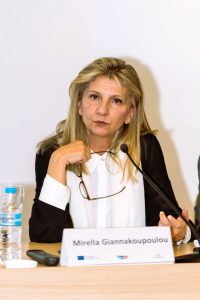
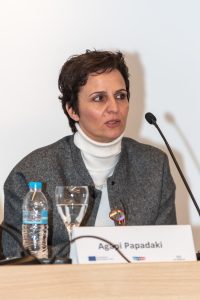

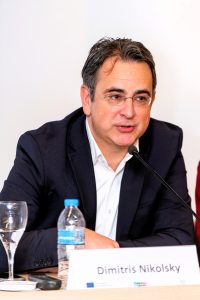
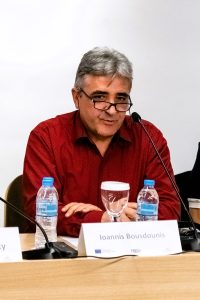

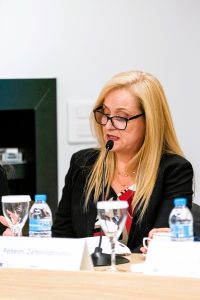



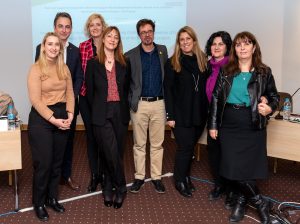

Final Conference
The ‘ECI Greece project’ concluded with a final event taking place on 15th January in Athens and online, attended by over 150 participants.
The event brought together government officials, representatives from the health, education, and social sectors, ECI service providers, professionals, disability organisations, academia, and international ECI experts.
Marina Stefou, Secretary General for Demographic and Housing Policy, at the Greek Ministry for Social Cohesion and Family Affairs opened the event on behalf of Minister Zacharaki and stressed the commitment of the Ministry in implementing the reform: “Setting the foundation for healthy child development is of a fundamental importance for the Ministry of Social Cohesion and Family Affairs, which is committed to the development of an integrated family-centred early childhood intervention system that will benefit our children and the future generations.”
The event presented the key components of the ECI Greece Project, including the training and pilot on family-centred methodologies for staff of social services, the Country Report, which provides a state of play of ECI in Greece and the development of a national level-Agora for ECI, which invites professionals, family members, policymakers and other key stakeholders to support the development of family-centred ECI. A key outcome of the project has been the development of an Action Plan for ECI in Greece. Developed in collaboration with national and international stakeholders and experts, the plan lays the foundations for the transition to a comprehensive ECI system in Greece.
Ciresica Feyer, Deputy Head of the Unit in charge of ‘Labour Market, Education, Health and Social Services’, of DG REFORM underlined the importance of the methodology in the development of the Action Plan “I would like to highlight the importance of the ECI Action Plan as an instrumental tool paving the way towards an evidence-based policy and legislative framework in Greece. The plan has been developed with stakeholders from various sectors, such as social, health, and education, representatives of families, persons with disabilities and child rights, which demonstrates the inter-sectoral nature of the ECI topic and the value-added of this approach based on cooperation and co-creation”.
The event also brought together representatives of the Ministries of Social Cohesion and Family Affairs, Education Religious Affairs and Sports, the Institute of Child Health, the Panhellenic Federation of Societies of Parents and Guardians of Disabled People, and the ECI provider ELEPAP, to discuss the future of the reform. Participants agreed that the project brought first and foremost a common language, but also an understanding on the importance of ECI and the need for a transition towards a family-centred model. It was agreed that the successful implementation of the reform will require common efforts towards a common goal to overcome existing barriers in terms of coordination, funding, training, and family engagement.
To close the event Irene Bertana, EASPD Senior Policy Officer and ECI Greece Project Manager, concluded that “This project contributed to strengthening the ECI community in Greece and abroad, with whom EASPD will continue to advocate for the creation of national family-centred ECI systems. The tools and methodologies developed within the ECI Greece project will be extremely useful for our future advocacy and for all the countries and providers that want to transition towards family-centred ECI.”
You can find here the presentations shared during the event:
- Summary of ECI Greece project, Irene Bertana
- Action Plan for ECI in Greece, Vasilis Kalopisis (in Greek)
- You can find here the press release EASPD published for the event


